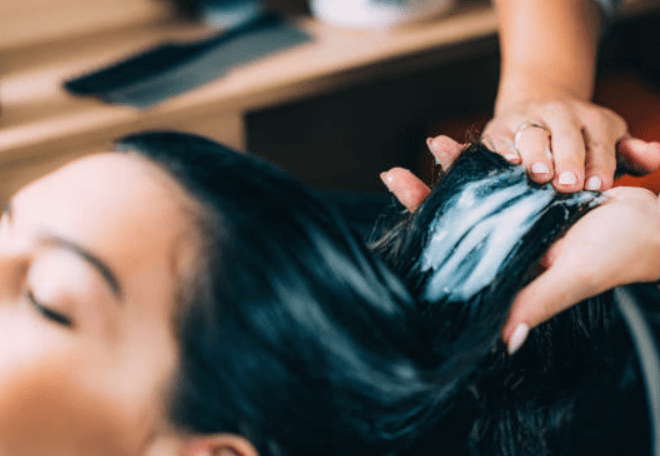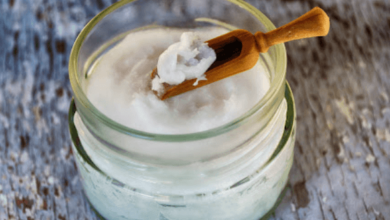Can You Use Conditioner Without Shampoo? Pros and Cons

The idea of using conditioner without shampoo, often referred to as “co-washing” or conditioner washing, has gained popularity as a way to simplify hair care routines and potentially benefit the hair. This method involves applying conditioner alone to cleanse and condition the hair, bypassing the traditional shampoo step. While this approach can offer several advantages, it also has its share of drawbacks. Here’s a detailed examination of the pros and cons of using conditioner without shampoo.
Pros of Using Conditioner Without Shampoo
1. Moisturizing Benefits
One of the primary advantages of co-washing is its ability to provide intense moisture. Traditional shampoos, especially those containing sulfates, can strip the hair of its natural oils, leading to dryness and frizz. Conditioner, on the other hand, is formulated to hydrate and nourish the hair. By using conditioner alone, you can help maintain your hair’s natural moisture balance, which is particularly beneficial for those with dry, curly, or textured hair.
See also: Why Luxury Travel Is More Than Just 5-Star Hotels
2. Reduced Frizz and Breakage
Co-washing can help reduce frizz and breakage. Since conditioners are designed to smooth the hair cuticle and reduce tangling, they can make it easier to manage and style your hair. This is especially useful for individuals with curly or wavy hair, which is more prone to frizz and breakage. By avoiding shampoo, you eliminate the risk of harsh cleansing agents disrupting the hair’s natural structure.
3. Less Harsh on Color-Treated Hair
For color-treated hair, co-washing can be a gentler alternative. A traditional shampoo and conditioner, particularly those with sulfates, can accelerate color fading by stripping away color molecules. Using conditioner alone helps to preserve the vibrancy of your hair color by avoiding the harsh ingredients found in some shampoos. This can extend the life of your color treatment and keep your hair looking fresh and vibrant.
4. Simplified Hair Care Routine
Co-washing can simplify your hair care routine by reducing the number of products you need. For those who prefer a minimalist approach, using conditioner alone can streamline the process, cutting down on both time and expense. This method also reduces the need for additional styling products, as conditioner helps with detangling and smoothing.
5. Enhanced Manageability
Conditioner helps to detangle and soften the hair, making it easier to comb and style. By using conditioner without shampoo, you can benefit from these detangling properties without subjecting your hair to the potential drying effects of shampoo. This can be particularly advantageous for people with long, curly, or thick hair, which can be challenging to manage and style.
Cons of Using Conditioner Without Shampoo
1. Build-Up and Residue
One of the main drawbacks of co-washing is the potential for build-up. Conditioners are designed to leave a residue that helps to smooth and protect the hair, but this can accumulate over time if not properly cleansed. Without the use of shampoo, which is formulated to remove oils and product build-up, your hair may start to feel heavy and greasy. This build-up can also lead to a less effective conditioning treatment over time.
2. Inadequate Cleansing
Conditioners are not formulated to cleanse the scalp effectively. While they can help to remove some dirt and oil, they do not provide the same deep cleansing benefits as shampoo. For those with oily scalps or who use a lot of styling products, conditioner alone may not be sufficient to thoroughly cleanse the hair and scalp. This can result in an imbalance of oils and potential scalp issues such as acne or dandruff.
3. Not Suitable for All Hair Types
Co-washing may not be suitable for everyone. Individuals with fine or oily hair types may find that using conditioner alone makes their hair appear limp and greasy. Fine hair can be particularly susceptible to weighing down, and without the clarifying effect of shampoo, it may lack volume and body. Additionally, those with scalp conditions or a propensity for excess oil may need the thorough cleansing that shampoo provides.
4. Possible Product Residue
Some conditioners contain silicones or heavy oils that can build up on the hair if not adequately cleansed. This residue can make the hair look dull and feel sticky or coated. If you’re using conditioner without shampoo, it’s important to choose a conditioner that is free from such heavy ingredients or to incorporate a periodic cleansing with a clarifying shampoo to remove any build-up.
5. Adjustment Period
Switching to co-washing can require an adjustment period. Your hair and scalp might need time to adapt to the new routine, which could initially result in a period of increased oiliness or build-up. During this transition phase, it’s common to experience some challenges as your hair adjusts to the change in routine.
Conclusion
Using conditioner without shampoo, or co-washing, offers several benefits, including enhanced moisture, reduced frizz, and a simplified hair care routine. It can be especially advantageous for those with dry, curly, or color-treated hair who are looking for a more hydrating and gentle approach to hair care. However, co-washing also has its drawbacks, including the potential for build-up, inadequate cleansing, and suitability issues for certain hair types. To determine if co-washing is right for you, consider your hair type, scalp condition, and personal preferences. Experimenting with different routines and products will help you find the best balance for healthy, manageable hair.


